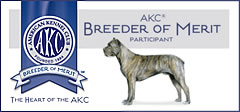IMPORTANT: If you have a serious concern that your dog or puppy has parvo, it is vitally important that you contact your vet immediately! The sooner you get your puppy on fluids and support, the better your chances of saving its life from this often deadly disease.
Canine Parvovirus:
Canine parvovirus, commonly referred to as "parvo", is among the most common and deadly virus infections for dogs. This preventable disease is a highly contagious virus that is easily contacted and is particularly deadly for young puppies. Parvo is spread by direct or indirect contact with infected feces or soil, yet is easily avoidable with proper vaccination and care to prevent opportunity for infection in unvaccinated pups. Reported mortality rates for dogs infected with canine parvovirus range between 16-48%, but drastically jump to over 80% fatality for young puppies. Parvo infection causes dehydration, damage to the gastrointestinal tract, and cardiac syndrome in very young pups. Symptoms include dehydration, loss of appetite, fever, lethargy, depression,
vomiting, severe diarrhea (often green, yellow, bloody, and very foul-smelling), gastrointestinal distress, and shock.
Infection:
Parvo is highly contagious virus spread from infected feces. Direct or indirect contact with infected feces or soil can easily spread the infection to your pup. Parvo virus particles are excreted in the feces of infected dogs and parvo viruses are particularly long-lived in the environment, lurking for many months outside the dog, even in extreme temperature and weather conditions. Contamination can be brought home to your pup on shoes, paws, hands and even car tires that have come in contact with the infected excrement.
Incubation Period:
The onset of clinical canine parvovirus symptoms is usually very sudden, often within less than 12 hours. The incubation period, from exposure and infection to visible onset of clinical symptoms varies between three (3) to ten (10) days. It is also important to note that any infected dog or pup will shed contagious virus particles in their feces from the point of exposure and for an additional two weeks afterwards.
Symptoms:
Canine parvovirus symptoms often progress very quickly, making it of utmost importance that you get your pup to a vet IMMEDIANTLY if you suspect it has contacted parvo. Symptoms include dehydration, loss of appetite, fever, lethargy, depression,
vomiting, severe diarrhea (often green, yellow, bloody, and very foul-smelling), gastrointestinal distress, and shock.
Initial Symptoms usually begin with:
- Dehydration
- Loss of Appetite
- Refusal to Eat
- High Fever
- Lethargy
- Depression
Secondary Symptoms soon follow, including:
- Vomiting - often intermittent
- Diarrhea - often bloody, green/yellow, and very foul-smelling
- Severe gastrointestinal distress
In many cases, shock, and death will quickly follow.
Parvo virus attacks the lining of a dog's digestive system, preventing the infected dog or pup from being able to absorb liquids and nutrients.
Parvo attacks and irritates a dog's stomach lining and can cause intussusception (when a section of the inflamed intestinal tract telescopes into itself), it can also attack a dog's heart leading to congestive heart failure. These complications can occur even months or years after an apparent 'recovery' from parvo. Often pups that are successfully treated and survive a parvo infection will still remain somewhat unhealthy and weak for life.
Diagnosis:
A suspected parvovirus infection is diagnosed by physical examination from a veterinarian, signalment (age, vaccination status, breed, etc.), and a fecal parvo ELISA (Enzyme Linked ImmunoSorbant Assay) test. Additional diagnostics can include bloodwork (dogs infected with parvo typically have a low white count) and radiographs (to help rule out other potential causes for vomiting and diarrhea).
Recent vaccination with a live parvo vaccine (modified live vaccines are the most effective) may result in inaccurate ELISA parvo test results. One of the first actions of the canine parvovirus is to inhibit white blood cell division in the bone marrow. The parvovirus essentially turns off the immune system of its infected host prior to making its deadly way to the GI tract. This means that a characteristic drop in white blood cell count is normally seen on a blood panel of a pup infected with parvo.
Treatment:
"An ounce of prevention is worth a pound of cure." Benjamin Franklin may not have had parvo in mind regarding this quote, but it is certainly applicable.
There is no 'treatment' or 'cure' for parvovirus. All your vet can do is provide fluids and supportive care while the disease runs its course. Without intense treatment and IV or SubQ fluids, most the victims of parvo will die of dehydration.
There is no specific treatment therapy to eliminate the virus itself. Most dogs that recover do so with the help of appropriate supportive care focused on the restoration of fluid balance.
Supportive care treatment may include any or all of the following:
- Oral electrolyte fluids, if the infection is mild and the dog is not vomiting.
- Subcutaneous (SubQ) or intravenous (IV) fluids, preventing dehydration and helping the dog to maintain hydration despite the extreme fluid loss from vomiting and diarrhea that are brought on by parvo.
- Anti-vomiting / anti-nausea medications, helping avoid further damage from vomiting and to keep the dog as comfortable as possible.
- Antibiotics, to help protect against secondary infection due to parvovirus tendency and potential to slough the intestinal tract.
- Blood or Plasma transfusions,if needed, to provide antibodies, replace protein loss, and help with anemia.
Most puppies infected with parvovirus need to remain at the vet for fluids and supportive care. On average a parvo vet stay can be about 5 days, sometimes longer.
If a pup manages to survive the first three days after the onset of parvo symptoms, chances are optimistic for survival and recovery.
Disinfection:
The parvovirus family of viruses are very stable, particularly hardy, and quite long-lived in the environment. Parvovirus cells commonly survive anywhere from 1 to 10 months even in extreme temperature and weather conditions, and are able to withstand wide pH ranges, high temperatures, and many common disinfectants. Due to the large amounts of resilient virus particles shed in the feces of an infected dog for two weeks or more after exposure, and the long-lived nature of the shed virus cells, contamination is common and complete eradication of the virus is often impossible.
Household bleach at a 1:30 dilution (one part bleach to thirty parts water) will kill shed parvovirus cells. You can also use commercial products labeled for use against parvovirus containing potent in-activators of the virus. When bringing home a new puppy, you can wash your puppy pen, floor, your shoes, and any area your unvaccinated pup will come in contact with to kill any lurking parvovirus cells and prevent the potential for infection. The more you disinfect every area and item (crates, pens, food and water bowls) your pup will be exposed to that could possibly have been contaminated, the more you reduce the risk of your dog picking up a parvo infection.
Prevention:
"An ounce of prevention is worth a pound of cure." -Benjamin Franklin
Parvo is easy to prevent, but difficult (if not impossible) to treat. Puppies are especially prone to parvo due to their young immature immune systems. Vaccination is the key to prevent this disease and protect your dog. Protecting your pup from possible exposure to parvovirus during the period before it is fully vaccinated is critical to its health and wellbeing.
If your pup goes home to you before vaccinations are complete, it is vitally important that you take him/her to your vet to receive the remaining boosters. Your puppy *will not* be protected (against parvo, distemper etc.) until it has received the full set of vaccinations and booster shots.
FULLY VACCINATE ~ BEFORE TAKING YOUR PUP OUT: Protecting your pup means you do not EVER put an unvaccinated pup in a situation where it could contact parvovirus. I can not stress this enough. Until your puppy is COMPLETLY vaccinated, do not take the chance of your new little one being exposed to Parvo/Distemper. This means, until fully vaccinated, your pup stays in your home, in a controlled environment. Trips to the vet are held/crated - not allowed to walk on the floor, sniff noses with other dogs, or be petted by strangers. Don't let your unprotected puppy run on the grass, stroll down the sidewalk, or play with the neighbors dog. Parvo lurks everywhere. At best, you will rack up a vet bill in the thousands in a matter of days trying to save your puppy ... At worst, your puppy will suffer and die despite anything your vet can do. Your pup's life is not worth taking that chance.
Pups will get their initial start at immunity thru colostrum from their dam. We recommend vaccinations and booster shots for parvo/distemper should be given at 6, 9 and 12 weeks of age.
Some veterinarians also booster at 16 and 20 weeks, depending on the breed and parvovirus risk in your area. You can speak with your veterinarian about what vaccination protocol is the best for your pet and your lifestyle, however, we encourage you to also educate yourself and do your own research regarding the dangers of over-vacinating, and vaccinosis.
IMPORTANT: If you have a serious concern that your dog or puppy has parvo, it is vitally important that you contact your vet immediately! The sooner you get your puppy on fluids and support, the better your chances of saving its life from this often deadly disease. |



